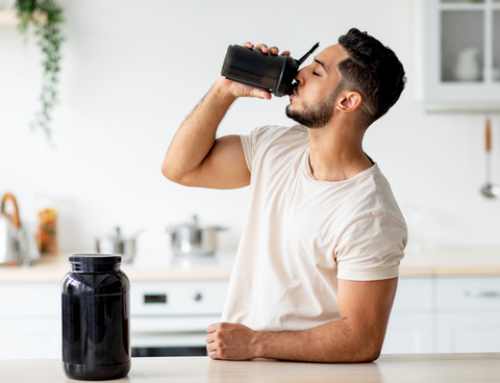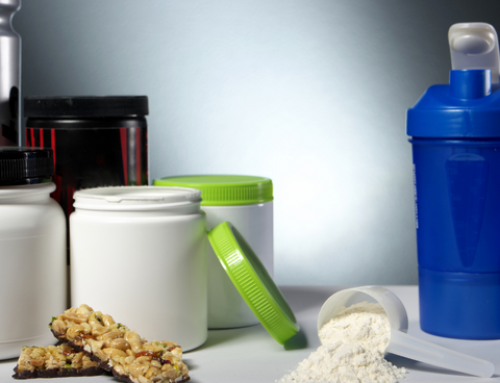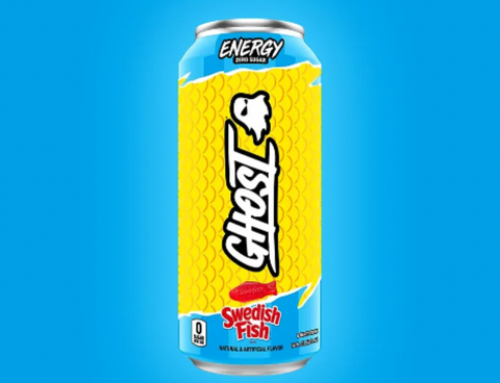5 Supplements for Athletes That Aren’t a Waste of Money
The number of sports supplements available for purchase these days is staggering. Seemingly every product aimed at athletes claims to make you run faster, hit harder or get jacked—all just by swallowing a pill.
If only it were that simple. The unfortunate truth is that most supplements fail to fulfill the exaggerated promises they make to help sell them. That’s not to say all supplements are useless. When built around a healthy diet, they can be very effective for enhancing athletic performance. The trick lies in knowing which types of supplements out of the thousands of potential options to hone in on. With that in mind, here are five supplements I believe rise above the snake oil and offer real benefit for athletes.
1. Creatine
Creatine is a natural amino acid most commonly found in red meat. No other supplement can boast a track record as proven as creatine when it comes to packing on strength and muscle, especially when combined with resistance training. Simply put, if you’re looking to get bigger and stronger (and most athletes are), creatine can help you get there.
Plus, creatine is super cheap relative to most other supplements. What’s not to like about that? One thing to keep in mind on creatine is that recent research is finding that it may actually be better to take it immediately following resistance training as opposed to immediately preceding it.
2. Vitamin D
Exogenous vitamin D supplementation is associated with increased upper- and lower-body strength, reduced injury risk, as well as improved sprint times and vertical jump height. Furthermore, having higher serum levels of vitamin D decreases your risk of many serious illnesses, ranging from depression to type 2 diabetes, cancer and even overall mortality.
Dietary sources of vitamin D are fairly scarce, limited largely to egg yolks, fatty fish and fortified products like cereals and milk. The easiest way to get vitamin D is from sunlight. Human skin creates significant amounts of vitamin D exposed to sunlight.
Most of my athletes are hockey players. Hockey is an indoor sport played during the darkest months of the year in some of the coldest regions in the world. Athletes who spend a lot of time training and playing indoors are especially likely to suffer from low vitamin D levels. However, studies have found even athletes living in warm, sunny regions are at risk of receiving insufficient or deficient levels of vitamin D.
Vitamin D has even been linked with preventing groin strains, which is very good news knowing the prevalence of groin injuries in sports like hockey.
So, how much vitamin D do you actually need? The Institute of Medicine recommends 600 daily International Units for most adults, but many sports dietitians recommend higher amounts for athletes. A recent article from The Wall Street Journal states that “some sports dietitians encourage athletes to get 1,000 to 2,000 IU [of vitamin D] daily.” If you’re deficient in magnesium, as many Americans are, that can seriously hamper the way your body utilizes vitamin D. Which leads us to our next supplement…
3. Magnesium
As mentioned, most athletes don’t consume adequate amounts of magnesium in their diets. While magnesium doesn’t improve athletic performance directly, being magnesium-deficient can certainly affect your game.
Common symptoms of magnesium deficiency include:
- Muscle weakness
- General fatigue
- Loss of appetite
- Insomnia
Feeling tired during the day, eating like a bird and having trouble sleeping are guaranteed to drag down athletic performance, yet all of these are incredibly common due to the fact most people don’t consume enough magnesium. It’s estimated that up to 75% of the total US population is consuming a magnesium-deficient diet.
Magnesium assists in the activation of vitamin D. Without sufficient magnesium levels, vitamin D can’t be metabolized. Simply put, if you’re deficient in magnesium, vitamin D remains stored and inactive in your body, and you won’t get its benefits.
Unless you’re willing to eat a boatload of bananas or endure bodily gas bombs after consuming a few cans of beans every day, your best course of action to ensure recommended magnesium intake is through daily supplementation. That way, you’ll also obtain the optimal health and performance benefits of vitamin D.
4. Fish Oil (Omega-3s)
Inappropriate, excessive or uncontrolled inflammation contributes to a range of human diseases, including heart disease and rheumatoid arthritis. The long-chain omega-3s found in fish oil reduce inflammation, thus offering protection against such diseases.
When it comes to athletic performance, a 2018 study published in the European Journal of Sport Science found that fish oil supplementation led to a reduction in lower-body muscle soreness in elite Rugby Union players. Feeling less fatigued, the athletes were then able to better maintain their explosive power during preseason training.
It’s normal to feel sore now and then. But if your legs feel like cement every time you step onto the field, court, track or ice, something’s up. Omega-3 supplementation can also boost your reaction time, reduce your risk of overuse injuries and improve body composition, making them a powerful supplement for athletes.
5. Protein Powder
Many athletes won’t need to consume protein powder because they already get enough protein from solid food.
But for those who can benefit from more protein consumption, you can’t beat the convenience of a protein shake. As great as whole foods are, it’s not always easy to cook a couple of chicken breasts, a small mountain of rice and a plateful of vegetables every time you need to consume calories/protein.
That can take anywhere between 15 to 30 minutes depending on your skills in the kitchen. Mixing a few scoops of protein powder into water is a 30-second affair, making it a great option when you’re pressed for time. Here’s how to pick the right protein powder, plus how much protein you actually need in a day.
Photo Credit: JackF/iStock
RECOMMENDED FOR YOU
MOST POPULAR
5 Supplements for Athletes That Aren’t a Waste of Money
The number of sports supplements available for purchase these days is staggering. Seemingly every product aimed at athletes claims to make you run faster, hit harder or get jacked—all just by swallowing a pill.
If only it were that simple. The unfortunate truth is that most supplements fail to fulfill the exaggerated promises they make to help sell them. That’s not to say all supplements are useless. When built around a healthy diet, they can be very effective for enhancing athletic performance. The trick lies in knowing which types of supplements out of the thousands of potential options to hone in on. With that in mind, here are five supplements I believe rise above the snake oil and offer real benefit for athletes.
1. Creatine
Creatine is a natural amino acid most commonly found in red meat. No other supplement can boast a track record as proven as creatine when it comes to packing on strength and muscle, especially when combined with resistance training. Simply put, if you’re looking to get bigger and stronger (and most athletes are), creatine can help you get there.
Plus, creatine is super cheap relative to most other supplements. What’s not to like about that? One thing to keep in mind on creatine is that recent research is finding that it may actually be better to take it immediately following resistance training as opposed to immediately preceding it.
2. Vitamin D
Exogenous vitamin D supplementation is associated with increased upper- and lower-body strength, reduced injury risk, as well as improved sprint times and vertical jump height. Furthermore, having higher serum levels of vitamin D decreases your risk of many serious illnesses, ranging from depression to type 2 diabetes, cancer and even overall mortality.
Dietary sources of vitamin D are fairly scarce, limited largely to egg yolks, fatty fish and fortified products like cereals and milk. The easiest way to get vitamin D is from sunlight. Human skin creates significant amounts of vitamin D exposed to sunlight.
Most of my athletes are hockey players. Hockey is an indoor sport played during the darkest months of the year in some of the coldest regions in the world. Athletes who spend a lot of time training and playing indoors are especially likely to suffer from low vitamin D levels. However, studies have found even athletes living in warm, sunny regions are at risk of receiving insufficient or deficient levels of vitamin D.
Vitamin D has even been linked with preventing groin strains, which is very good news knowing the prevalence of groin injuries in sports like hockey.
So, how much vitamin D do you actually need? The Institute of Medicine recommends 600 daily International Units for most adults, but many sports dietitians recommend higher amounts for athletes. A recent article from The Wall Street Journal states that “some sports dietitians encourage athletes to get 1,000 to 2,000 IU [of vitamin D] daily.” If you’re deficient in magnesium, as many Americans are, that can seriously hamper the way your body utilizes vitamin D. Which leads us to our next supplement…
3. Magnesium
As mentioned, most athletes don’t consume adequate amounts of magnesium in their diets. While magnesium doesn’t improve athletic performance directly, being magnesium-deficient can certainly affect your game.
Common symptoms of magnesium deficiency include:
- Muscle weakness
- General fatigue
- Loss of appetite
- Insomnia
Feeling tired during the day, eating like a bird and having trouble sleeping are guaranteed to drag down athletic performance, yet all of these are incredibly common due to the fact most people don’t consume enough magnesium. It’s estimated that up to 75% of the total US population is consuming a magnesium-deficient diet.
Magnesium assists in the activation of vitamin D. Without sufficient magnesium levels, vitamin D can’t be metabolized. Simply put, if you’re deficient in magnesium, vitamin D remains stored and inactive in your body, and you won’t get its benefits.
Unless you’re willing to eat a boatload of bananas or endure bodily gas bombs after consuming a few cans of beans every day, your best course of action to ensure recommended magnesium intake is through daily supplementation. That way, you’ll also obtain the optimal health and performance benefits of vitamin D.
4. Fish Oil (Omega-3s)
Inappropriate, excessive or uncontrolled inflammation contributes to a range of human diseases, including heart disease and rheumatoid arthritis. The long-chain omega-3s found in fish oil reduce inflammation, thus offering protection against such diseases.
When it comes to athletic performance, a 2018 study published in the European Journal of Sport Science found that fish oil supplementation led to a reduction in lower-body muscle soreness in elite Rugby Union players. Feeling less fatigued, the athletes were then able to better maintain their explosive power during preseason training.
It’s normal to feel sore now and then. But if your legs feel like cement every time you step onto the field, court, track or ice, something’s up. Omega-3 supplementation can also boost your reaction time, reduce your risk of overuse injuries and improve body composition, making them a powerful supplement for athletes.
5. Protein Powder
Many athletes won’t need to consume protein powder because they already get enough protein from solid food.
But for those who can benefit from more protein consumption, you can’t beat the convenience of a protein shake. As great as whole foods are, it’s not always easy to cook a couple of chicken breasts, a small mountain of rice and a plateful of vegetables every time you need to consume calories/protein.
That can take anywhere between 15 to 30 minutes depending on your skills in the kitchen. Mixing a few scoops of protein powder into water is a 30-second affair, making it a great option when you’re pressed for time. Here’s how to pick the right protein powder, plus how much protein you actually need in a day.
Photo Credit: JackF/iStock











